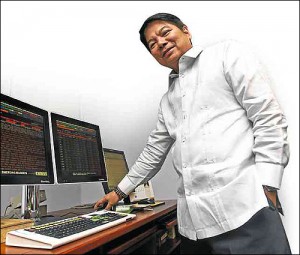The Bangko Sentral ng Pilipinas said the Philippines would not suffer from a “deleveraging” in the banking sector similar to that being experienced by financial institutions in Europe, saying local banks have more than enough resources to accommodate higher capital requirements being imposed worldwide.
BSP Governor Amando Tetangco Jr. said that unline banks in the eurozone, those in the Philippines enjoyed capital levels that were way above existing standards. He said that a tightening of capital requirements would not force banks in the country to dispose of existing assets just to comply with the new rules.
He cited the capital adequacy ratio (CAR) of most banks in the country at 16 to 17 percent, way above the 10-percent minimum currently required by the BSP and the 8-percent floor prescribed internationally. Of the CARs, between 13 and 14 percent are Tier-1 capital, which are mostly retained earnings and common stocks and are thus considered of better quality compared with capital sourced through bond issuances.
“[Developments in Europe] are not very encouraging thoughts, but the upside is that we [BSP] do not believe right now that such is the case for the Philippines,” Tetangco said.
Deleveraging, or the act of divesting assets, has heightened in Europe following the need to raise more capital to meet higher capital requirements to be imposed over the medium term. Regulators globally have been urged to impose stricter capital requirements to prevent another crisis similar to the latest global turmoil, which was believed to have stemmed from banking failures in advanced economies.
Stricter capital requirements are required under the Basel 3, the updated set of international bank-regulatory standards. For instance, banks are required to have a significant amount of Tier-1 capital in their total capital.
The BSP will implement the tighter capital requirements in full by 2014, ahead of most advanced economies that will implement the new standards on a staggered basis through 2018.
With the deleveraging in the eurozone, banks in the Western region have started to dispose some of their assets in emerging Asian markets, including the Philippines.
Monetary authorities in Asia, however, said that deleveraging by European firms should not be a concern. In fact, they said this could benefit Asian banks through the availability of more markets that European banks were leaving behind.
Tetangco has maintained that the Philippine banking sector remained sound and healthy. He added that the effects of the global economic turmoil on banks in the country would not be significant enough to cause stress.
Documents from the BSP showed that the combined net income of universal and commercial banks in the Philippines amounted to P30.45 billion in the first quarter, up 41 percent from nearly P22 billion in the same period last year.
